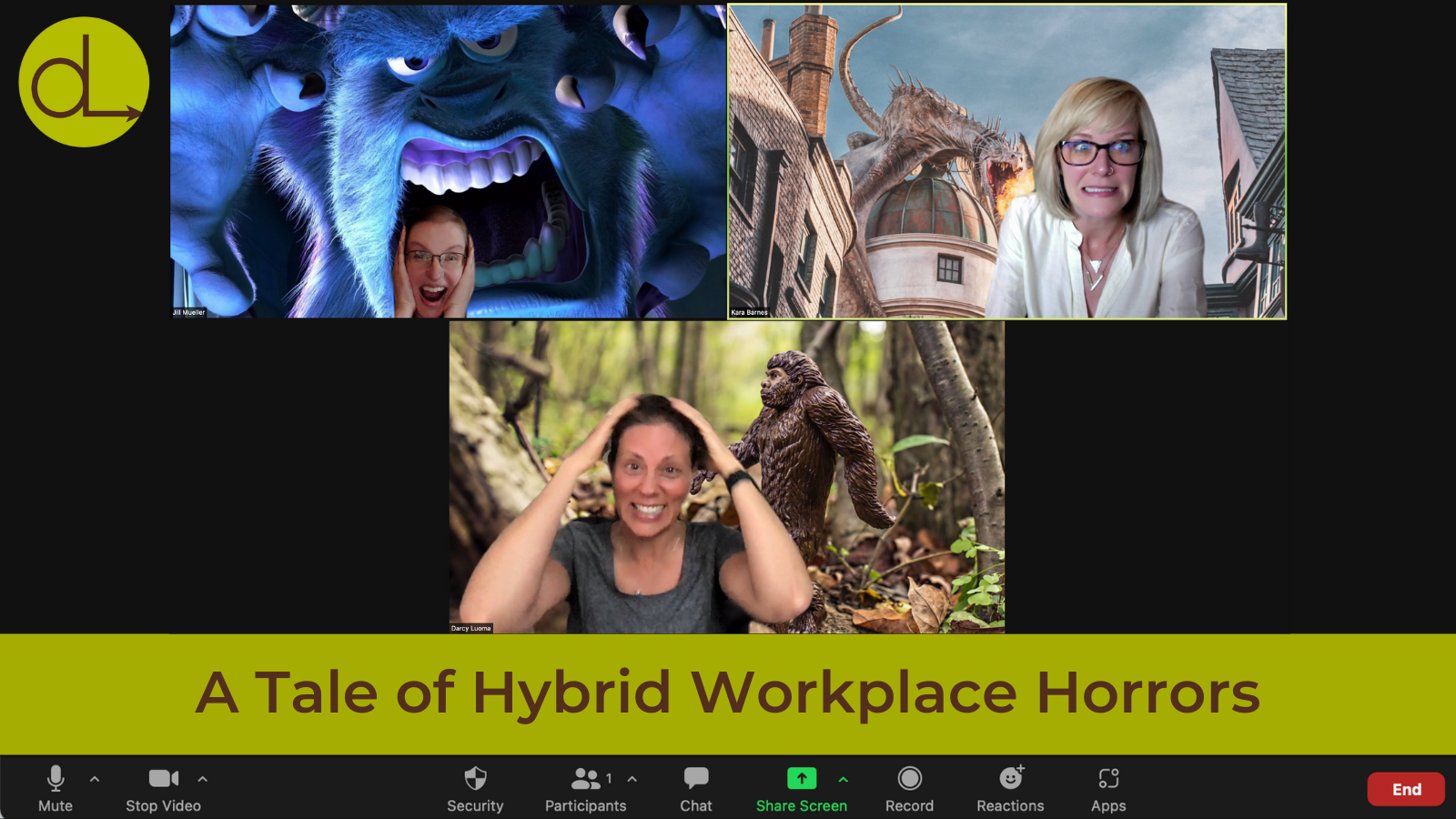Looking at Elle through my computer screen, she seemed defeated.
When COVID first hit, we all experienced a major shift in the workplace. Many people were laid off while others were left to figure out the beast that’s remote working. Cut to now and we’re faced with a completely new monster.
Hybrid working (ooo… spooky).
It sounds like something that could’ve only been thought up by Dr. Victor Frankenstein himself. And like most monsters, it has had a lot of us screaming out of frustration.
This was the monster that Elle was up against.
During our virtual, executive coaching session, Elle looked at me through the screen and laid out her experience with hybrid working. Let’s just say… it was a rough one.
“I feel as if…my colleagues think less of me.”
Her voice buzzing through my computer’s speakers, Elle said, “I feel as if the rest of my colleagues think less of me. As if because I choose to work from home, where I feel safer, I’m less invested in the company. And I feel like that has completely changed the way we work and communicate.”
The shift from remote working to hybrid working has been hard on her. Heck, it’s been hard on all of us. These changes have the potential to throw our professional relationships completely off balance. And for many of us, they have.
I empathize with Elle. When the pandemic hit, the way we communicated with one another completely changed. Conversations that we normally would’ve had at a conference table, over coffee, or on a walk were now happening in our MacGyvered offices via Slack pings and hours on Zoom. This quick change threw us all off balance. Our communication comfort zone was ripped out from under us, and we had to adapt and find new ways to be productive and stay connected.
For most of us, these changes are not optional and may even be indefinite—thanks Delta. Regardless, we need to figure out how to navigate the awkwardness they may have created within our teams.
You Still Have Control
Tackling this together in our coaching session, Elle and I explored what was in and out of her control when it came to her hybrid working people problems. Here’s a bit of what she came up with:
Out of her control:
- Her company’s hybrid work policy
- Her colleagues’ opinions of her decision to work from home
- How her colleagues communicated with her
In her control:
- Recognizing the risk to her health and choosing whether to work from home
- Sharing with her colleagues how she felt
- Discussing steps towards achieving re-alignment
Even though there were parts of Elle’s hybrid working experience she couldn’t control, there were still aspects she could. And with that came choices. She could either communicate with her colleagues how she felt or continue working without addressing the disconnection affecting her team.
Some thoughtful questions helped her have new insights. “What’s important for your team to know?” and “What would you like to be different in these relationships?”
As we worked through these questions, it was as if my screen got brighter from her determination. She explored how the conversations could go, how she could incorporate the three C’s of communication, and what her ideal win-win situation would look like.
She was preparing to slay this monster.
 One-Minute Core Workout
One-Minute Core Workout
When hybrid working has you feeling disconnected from your team, take a moment to engage your core and explore the choices you have to achieve realignment.
- Pause. When you’re feeling out of sync with your team.
- Think. What is feeling off right now? What do I need to share with my colleagues? What steps can help us re-connect?
- Act. Take that first step towards realignment. Don’t just Think about what you should say. Have the conversation!
Hybrid working can and often does present us with a monstrous challenge. But by practicing having Balanced conversations, we can work towards getting Thoughtfully Fit and overcoming that monster.


 One-Minute Core Workout
One-Minute Core Workout